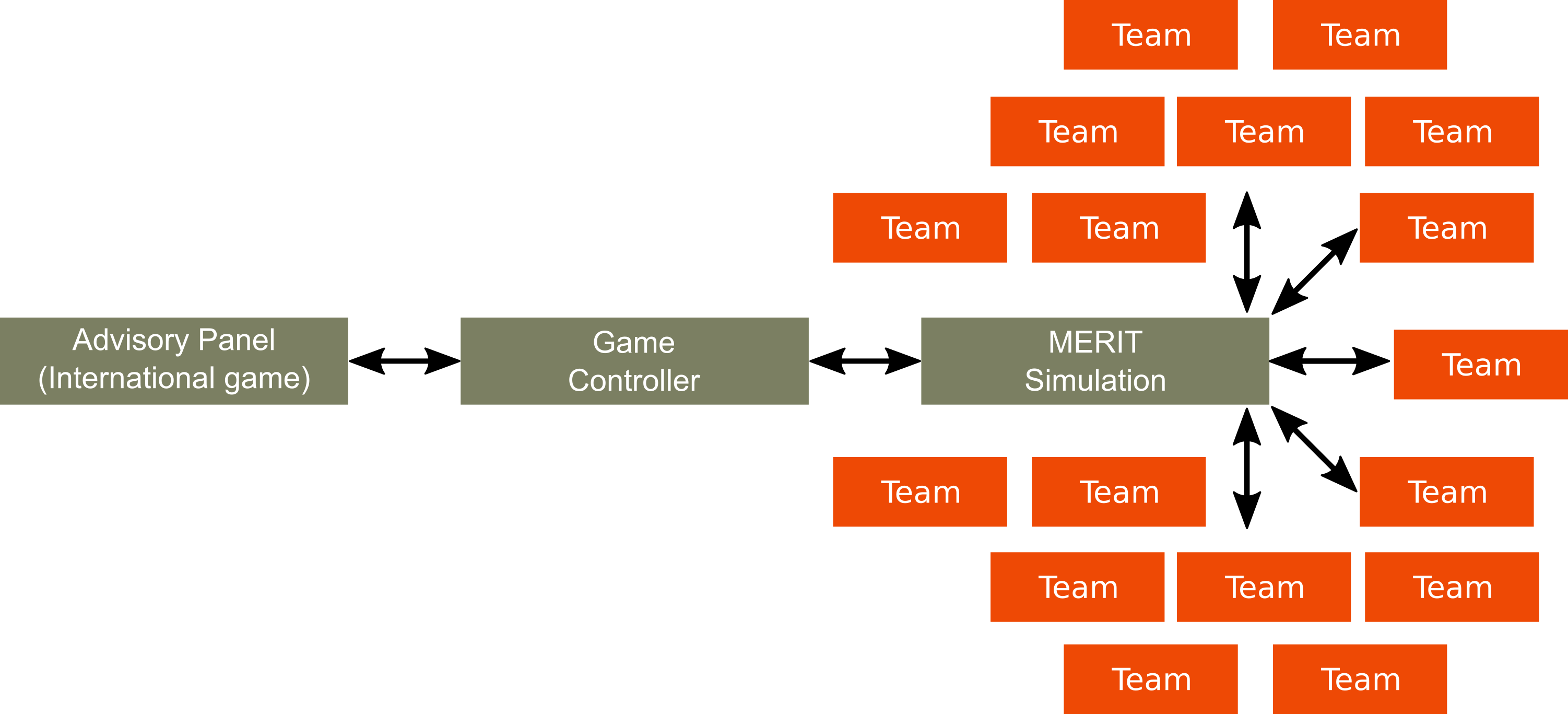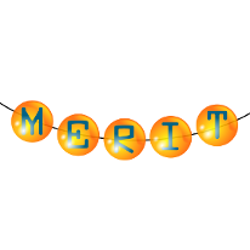The operation of MERIT is as illustrated.

The advisory panel agree the defined market conditions for the simulation and once set up and running there is no intervention by the game controller.
Each team starts from the same set of company performance data representing one year’s trading so the growth or decline of companies over the next two simulated years of trading in phase1 can be directly compared and so generates the motivation of competition.
The performance of each company is measured by :
- Turnover
- Operating Profit to Turnover ratio
- Company Value
- Capital Employed
- Contract Completion Rate
- Forward Workload
- Forward Margin
- Share Price
- Client Satisfaction
At the end of the two years trading the top six `teams are brought together for the final two years of trading and competition is accentuated by competing now against each other as well as the simulation. This heightens certain aspects such as competition for quality staff and project managers. This new level of competition makes outcomes from the decisions even more uncertain.
Starting from an historical position of one year's trading, a company must be managed through two phases:-
Phase 1: The Early Years
The team, operating as a board of directors, runs the company and competes against a computer-generated company for contracts over a number of rounds in a simulated construction market which is updated regularly to reflect the changing industry conditions.
Each round, known as a period, represents one quarter, or three trading months. The dynamics of this stage of the competition enable the teams to appreciate the impact of each decision they make.
Phase 2: The Final Years
The leading teams from the early years compete in the final years over a further number of rounds. Each team starts with their company operating from its position at the end of the early years, allowing them to benefit from their decisions to date.
During the final years the teams will compete against the computer-generated company and each other for both jobs and staff, ensuring an even more highly competitive environment.
Inter-alia MERIT:
- Introduces the participants to company managerial and financial management which was not the focus of their previous technical training and experimentation is within a controlled environment
- Provides a greater understanding of the problems and decisions that are involved in running a modern construction company and the interdependency of the management functions
- Raises awareness of their own role in the commercial process
- Gives a more holistic perspective of the construction process
- Improves team-working, communication skills and other interpersonnel skills
- Supports the development of broader and hybrid skills
- Develops analytical and problem-solving techniques
- Measures performance benchmarked against other competing teams and so develops a heightened sense of the existing competitive commercial environment and thus produces young executives more aware of the commercial realities of business
- Facilitates development of skills required for managing in an IT dominated environment









